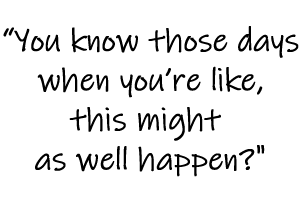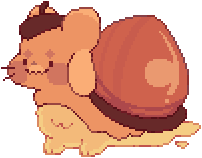Throughout this form, I will use plumies as my topic since this was made orignally for them, however, these tips can be used for pretty much any adopt.
Tips for trying out:
If anyone has anything to add, post it below!
Tips for trying out:
- Learn about your judge. Look at past contests that they've judged and see what they look for in a winner. Do they have a soft spot for some particular kind of personality? Do they like readings lots of writing or do they prefer art for development.
- A picture is only worth the number of words you attach to it. Art is good. Art can be key in a form. But all your art should relate to the character you're trying to build. Why did you pick this piece? How does it tell you something about them? Another left facing wolf isn't going to do it for you. Give them a personality and add in little things that really make the scene, like items or pets. Pick a pose that highlights their personality.
- When writing, don't be redundant and use line breaks. Once you've said something, you probably don't need to say it again, focus on developing other things first, then maybe revisit the most important concepts. Also use spacing. It's so hard to read things without proper line spacing.
- Figure out why you're writing something before you write it. Much like art, every piece of writing should have a point. Does your piece show how they handle stress? Does it show how they handle authority figures? Does it show their concepts of right and wrong? Just talking about someone's interests isn't much to read about, instead, show them enjoying those hobbies and add in some conflict. This brings me to my next point.
- When writing, show not tell. Always show what you can about a character through writing and try to avoid just talking about them. Now in some cases you might need to, it might be something your character doesn't ever really talk about or they might not even know about. Or you might need to be keeping it brief. But when you can, try to. Just in case you aren't sure what I mean by this, here's an example:Telling wrote:Dave likes baking, gardening, flowers and playing board games.Showing wrote: Dave looked around his apartment, only now notice all the little things he had collected that had changed it from a bleak jail cell where he was to suffer to a place that he actual enjoyed being in sometimes. He could see his collection of cookie cutters from where he was standing, all the fun time he'd had baking with them. His eyes turned to the window sill and he let out something between a laugh and a snort. You could hardly see out the window with how many different flowering plants he had collected over these long two years. Finally his eyes turned to his stack of board games, he remembered playing all those games with the friends he used to have. He'd always beat them and they'd all laugh and bemoan his gaming skills. His smile fell away as he remembered those fun times.
Do you see the difference in that? With the first one you probably read over it with little impact on you, with the second one you got all that information in way more depth, while having a nice lead-in to a backstory. What happened to all his friends? Why did his apartment feel like a jail cell to him? What happened in these two years? When you show, you get your audience hooked and you let them ask the questions, and while you want to make it understandable, you also want to make them think, let them try to guess at your character. The more the judges are thinking about your character the better. - Give your character flaws. Nobody is perfect, so make sure your character isn't. Maybe they're sweet but don't think ahead about things. Maybe they're just a jerk unless someone really needs help. Maybe they're a wimp. Whatever flaws you choose, make them deep enough that it gives your character depth. Don't do something like "They're nice but sometimes they can be a little snappy but don't worry they say sorry right after." Or catch alls like "He's a really sweet guy but he has a bad boy side that can easily be swayed and also he's a bodybuilder and eleven feet tall with flawless eyes and skin but also he's very shy." Your flaws should be real ones. Like "She's nice normally, but when she gets worked up over something she'll take it out on anyone around regardless of whether or not they had anything to do with the situation." Or "They are a mean person to other people. Unless someone's really in danger, they just laugh at other's misery. However, they do have a soft spot for animals and secretly will take hurt animals into their home and treat them."
- Be realistic about weight/hair/features. Does your character sit around on the couch all day and game, yet somehow they have 'perfect' body weight? (I say perfect and I mean by our ridiculous society's standards. Everyone's body weights are perfect no matter what.) that doesn't make a lot of sense. Try out different body types for your character, there's tons of different natural body types, mess around with them. Same goes for hair or other features. If your girl is rough and tumble kind gal, her hair should be unkept, probably in some easy to manage hair style or short. Teenagers aren't going to have perfect clear skin, noses don't need to be tiny and round. Experiment and keep trying new things.
- Don't use a culture/gender/mental illness or disability/disability/condition/sexuality of any kind unless you know what you're talking about. Do your research and never use any of those things as personality traits. If you actually have/are any of the things above, you're welcome to use your own experiences, but never lie about that to be able to use things harmfully. I've seen people trying to claim that they can use ADD and ADHD as adjectives because they "have both" despite that being impossible. Never use harmful stereotypes to build your character. This is very serious. Don't do it.
- Have fun. Why tryout for something if you aren't having fun doing it? Enjoy what you're drawing/writing, and don't force ideas that you don't like. This is all just for fun, so make sure you're enjoying it.
Don't expect to win your first contest. It's a good hope, but odds are likely you'll need time to figure out the judges and practice development. You shouldn't not try, you should try your very best. But don't be down on yourself if you don't win the first few contests. Or even your first twenty contests. Took me near thirty tryouts to get my first. You just gotta keep working at it.- Don't tryout for a plumie just because the contest is easy. Honestly, I will admit to doing this with Ritika. I wasn't super connected to her design but I thought, why not, seems simple to win? And I did win her, and I ended up really forming a strong bond with her. But that won't always be the case. So if you don't love them, leave the contest to someone who will.
- Read the rules twice. Always go through and reread the contest rules again. Make sure your form is exactly what the judge was looking for.
- Who they are, not where they're from. Focus on building a character, not explaining their history.
- Don't start a form if you know you won't have time to finish it.
- Get the required parts down before the extras.
- Doing art for forms is great, but ALWAYS put effort into your
work! Sketches, sloppy pieces etc. more than often get skipped
over by judges, and most judges go off of effort in art. Even though
your allowed a ton of art, whatever art you do make or order
make sure it has effort in it (suggested by Tricksters) - Don't be a sore loser
- Check your character and make sure they have flaws! Personally, I use this site -> http://www.springhole.net/writing/marysue.htm
If anyone has anything to add, post it below!






